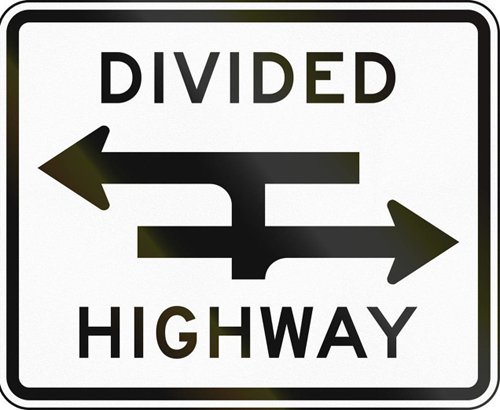HOME >> OPINION
US elites, grass roots have battle lines drawn
By Zhang Yifei Source:Global Times Published: 2019/8/21 20:58:40

Photo: IC
Kathy Zhu, 20, who was born in China and raised in Florida, the US, on July 19 was stripped of her Miss Michigan title by the Miss World America (MWA), because her "social media accounts contain offensive, insensitive and inappropriate content, and in violation of MWA's Rules and Conditions." Zhu was later welcomed as a member of US President Donald Trump's campaign team on July 26, which triggered heated debate.
According to screenshots of Zhu's tweets obtained by the Orlando Sentinel, a local newspaper in Florida, one of her posts was aimed at Muslim women, reading, "There is a 'try a hijab on' booth at my college campus. So you're telling me that it's now just a fashion accessory and not a religious thing? Or are you just trying to get women used to being oppressed under Islam?" The tweet was posted on February 1, 2018 but has been deleted. The Trump team said Zhu "is a patriot who has continued to stand for American values despite being stripped of her crown."
The totally opposite comments about one individual have shown the splitting trend of political thought in the US - elites and grass roots are moving toward political opposition.
Historically, high-level politics has usually been a game for US elites. Take US presidents, most of whom elected after WWII have been outstanding military officers, such as Dwight Eisenhower and John Kennedy, or professionals with doctoral degrees, such as Bill Clinton and Barack Obama. However, the incumbent Trump only has a Bachelor of Science without any political experience.
Academic degrees are not necessarily related to a person's capabilities but electing a president with low academic qualifications shows that elite politics is declining in the US while grass-roots politics has become the will of the people.
There are three main reasons for such a trend. First, dominated by elite politics, US international status has declined in the past decade, which has dissatisfied US domestic public opinion. Although US elites have constantly defended themselves, they haven't achieved convincing results.
US political scholar Joseph Nye said in a lecture titled "Is the American Century Over?" in 2014 in Seoul, South Korea, that the US share of world product would decline to some 18 percent over the next decade or so due to relative decline, which "represents the rise of the rest." "It's not that the United States is losing a lot or is in absolute decline, but it means that other countries are achieving more," he noted. But relative decline could lead people to question government, make them feel less proud of their country, cause slack social cohesion and thus trigger internal decline.
Second, Americans have lost faith in elites as the latter have failed to solve domestic problems in the past 10 years. During Obama's tenure, ordinary Americans didn't have equal opportunities as higher class people did and the US development model was characterized by "intergenerational plunder." At that time, the decline of manufacturing industry and energy industry raised unemployment while industrial restructuring was repeatedly delayed. The American Dream turned into "the American elites' dream" - ordinary Americans didn't see an improvement in their standard of living.
The share of American adults living in middle-class households in 2016 was 52 percent, up slightly from 51 percent in 2011, but down from 61 percent in 1971, according to a report by the Pew Research Center on September 6, 2018. "But while the size of the nation's middle class remained relatively stable, financial gains for middle-income Americans during this period (2011-16) were modest compared with those of higher-income households, causing the income disparity between the groups to grow," said the report.
Third, Trump, with much grass-roots support, has made some achievements in his first tenure. The US has had stable economic growth in the past three years. In the meantime, Trump, whose voters are mainly middle and lower-class white people, has boldly broken political correctness made by elites. Besides, his "America First" policy - which is domestically represented as "white first" - is popular among people of these two classes.
The grass-roots political trend in the US is not incomprehensible. In Western societies, high-level politics is often an arena for elites and grass roots. Every time the West encounters major social crises or economic slumps, people try to change their countries' fate with "high-level shuffle." During the West's universal decline, it is quite normal for the West's bellwethers - the US and United Kingdom - to have grass-roots heads of states and high-level officials.
It is worth noting that grass-roots politics usually upholds populism, defies authority and challenges existing rules. Rising populism in big Western countries could lead to the breakdown and reconstruction of international rules and tacit agreements between big powers. Proliferated populism in the US will inevitably promote domestic political polarization and lead to increasing conservatism, which will therefore make the US government adopt tougher foreign policy, adding uncertainties to international situation.
In the 2020 presidential election, blue-collar white voters from the Rust Belt and rural areas will show their strength. Neither the Republican Party nor the Democratic Party can overturn the opposition between elites and grass roots or overlook the latter's demands. Therefore, US elites will possibly have to make more concessions.
The author is an assistant research fellow with the Institute of American Studies of the Chinese Academy of Social Sciences. opinion@globaltimes.com.cn
RELATED ARTICLES:
Posted in: VIEWPOINT